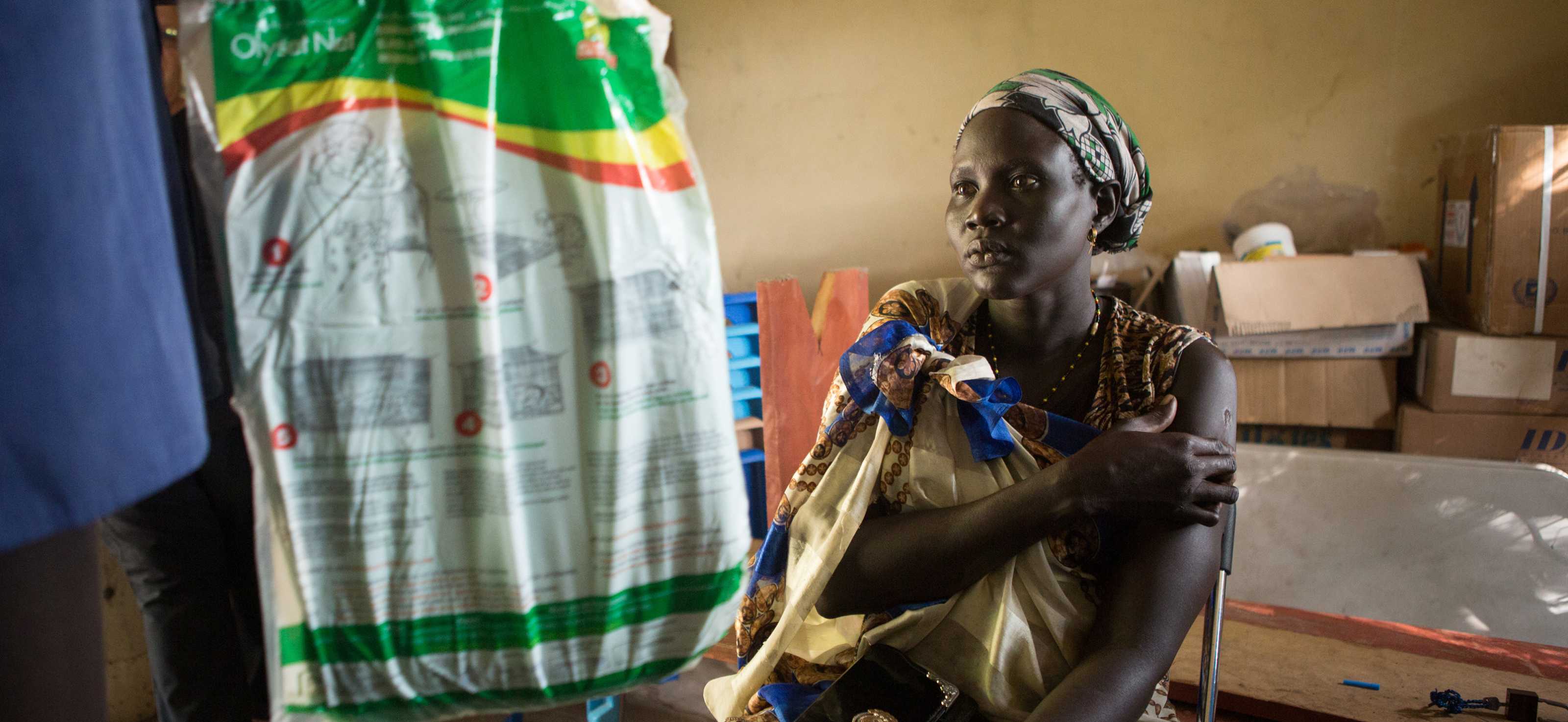At 36, Deborah Nyanduk is four months into her ninth pregnancy, and she is lucky to be alive. Like most mothers in South Sudan, she knows what it's like to go through pregnancy, delivery and recovery without ever being examined by a medical professional. There are no prenatal vitamins or blood pressure checks; no trained doctors to manage complicated deliveries or drugs to stop excessive bleeding.
In South Sudan, more women give birth in informal settings — like the dirt floor of a thatched hut, for example — than nearly anywhere else on earth. In fact, there is only one doctor for every 65,000 people in this country beleaguered by war and poverty. Not surprisingly, the number of women who die as a result of pregnancy or childbirth is staggering.
This lack of medical care keeps generation after generation in poverty. When mothers die, their young children's chances of survival drop dramatically. Left untreated, diseases like pneumonia, diarrhea, malaria and HIV take lives in large numbers. Children without adequate nutrition before age 6 risk life-long consequences, such as stunting and poor brain development — leading to difficulties in learning and barriers to generating income.
Clearly, basic health care needs to be a priority for the millions of families living in South Sudan. Part of the problem is that at any given time, so much of South Sudan's population is forced to move, whether by violence, poverty or a changing climate.
Mobile health care for a mobile population
At Corus World Health, we believe every person deserves access to quality medical care, regardless of where they live. We've spent more than 60 years turning that vision into reality for people like Deborah Nyanduk, who has lived her life on the run from violence and famine.
That's why, to serve Deborah's community, we set up medical units that are just as portable as the population itself. These mobile health centers emphasize providing nutrition support to pregnant and nursing mothers and children at risk for malnutrition, as well as other basic health care. Because when women have access to the right pre-natal and post-natal care, they are less likely to die — and their children have a better shot at growing up healthy and strong, too.
And when their communities are forced to pack up and move to a safer location, we move the health center with them to ensure they continue receiving the care they need. Thanks to this effort, our mobile medical facilities have been able to reach nearly 100,000 more people than we could have otherwise — and mothers like Deborah have been able to navigate the journey of child development while under the care of a medical professional.
Health care: thanks to your generous support, it's one less thing even an experienced mother like Deborah has to worry about, in a country where worry has no shortage.

